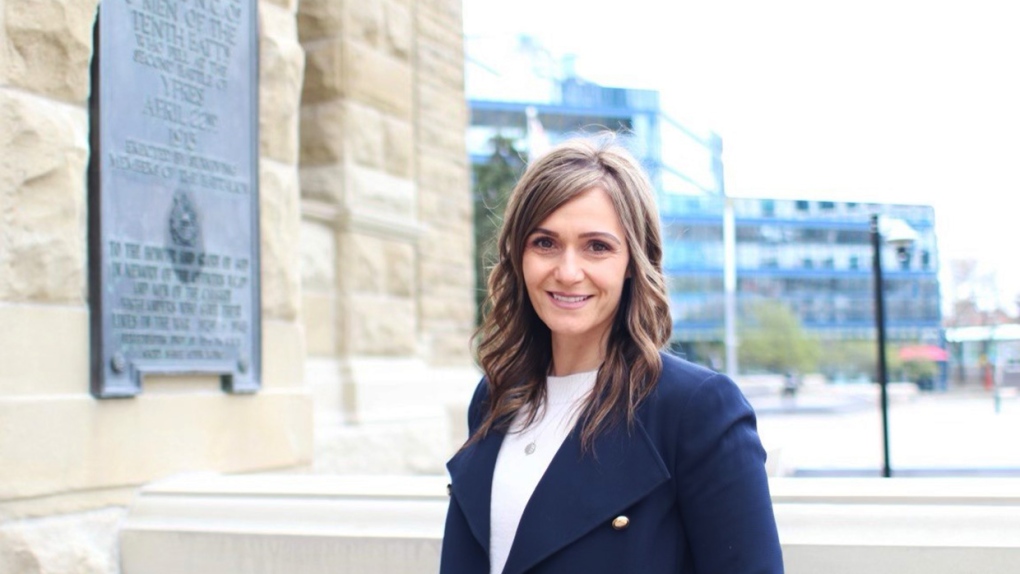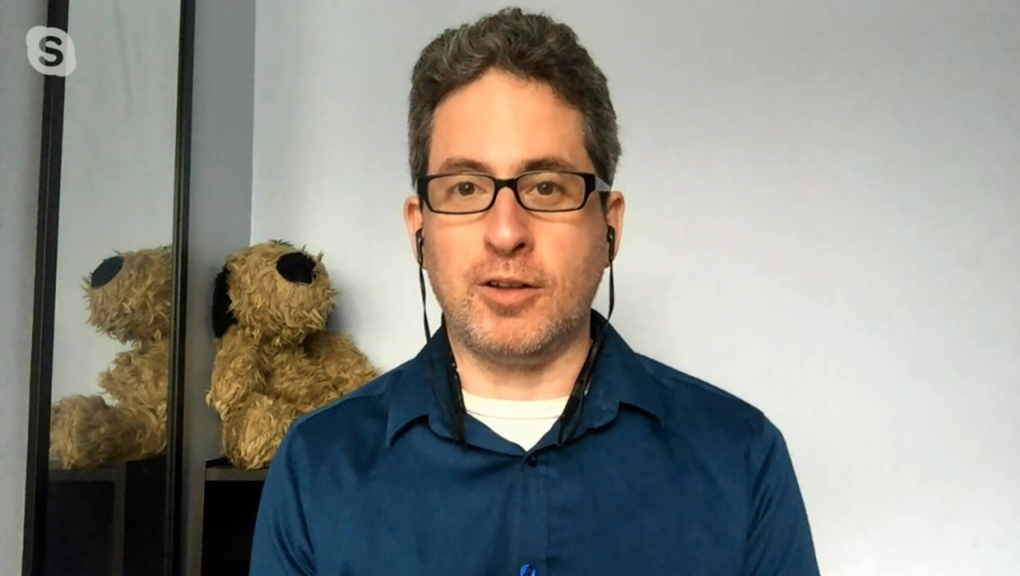Understanding the deal: Critics skeptical of Calgary event centre agreement ahead of Monday’s public meeting
A public meeting will give Calgarians an inside look into the exact details of an agreement in principle that could land the city a new event centre, but critics are already skeptical of the cost breakdown.
Coun. Sonya Sharp, chair of the city’s event centre committee says a meeting on Monday will allow administration to answer questions from councillors that have come up over the past six weeks.
Here’s a look at the cost breakdown:
- The arena itself = $837.6 million
- Transportation and infrastructure improvements = $238.4 million
- 1,000 seat community arena = $52.8 million
- Unspecified other costs = $58.5 million
- Parking for the arena = $35.4 million
- Enclosed plaza = $35.4 million
- “On site public realm” = $28.7 million
The $1.22-billion announcement came just days before the start of the provincial election campaign as Alberta’s UCP government committed $330 million for infrastructure surrounding the event centre, as well as 50 per cent of the funds for a community rink.
The city will be putting in $537.3 million to the project (44 per cent of total cost) which will go towards the new event centre, parking, an enclosed plaza, and 25 per cent of the community rink.
Calgary Sports and Entertainment Corporation (CSEC) will cover $356 million, but they won’t be paying the full bill immediately. They’re paying $40 million up front, followed by annual payments that will start at $17 million and increase by one per cent each year over 35 years
As well, CSEC is paying $1.5 million yearly to community sports programs as part of the deal. The Calgary Stampede will contribute with a land swap.
 Sonya Sharp, the new councillor for Ward 1
Sonya Sharp, the new councillor for Ward 1
Sharp says the city portion of the deal will come from funds rolled over from the previous deal, with money from the financial stability reserve making up the difference.
She notes that there will be no tax hike to cover the city’s investment.
“What we anticipate is the questions that the committee on Monday will have for administration will be very much the questions that we hear every day that we're seeing on social media,” said Sharp.
“We want to make sure we myth bust some of the misinformation that's out there, because I think that's really important at this point.”
'THERE IS ZERO REVENUE'
The deal in principle has received unanimous support from council members, but some critics are questioning how the costs are being framed by the city.
Ziad Fazel is a Calgary engineer who hold a business diploma and has long been involved with due diligence efforts on capital investments for the local private sector.
“This deal is corrupt. Administration has presented a corrupt, deceptive report to council and council in one vote has agreed on it,” Fazel said.
“They're supposed to have a fiduciary duty to act in our best interest to invest this land and capital in our best interest and they're throwing it all away for nothing.”
He says the cost-sharing breakdown is wrongfully framed on the city’s website showing event centre portion of the agreement as 56 per cent from the city, 38 per cent from CSEC and eight per cent from the province.
Fazel notes however that those upfront costs put forth by the city will be much higher since CSEC is only putting in $40 million at the very start of construction.
He says this would mean that the city is actually putting forward an additional $316 million at the very start of construction, making its upfront cost share sit at 89.7 per cent.
“The city is putting in $853 million and the only return is the repayment of $316 million of it and overall taxpayers are putting in $1.1 billion up front and CSEC is putting in $40 million up front into a mega-block of 10 acres that’s going to generate tens of billions of dollars,” Fazel said.
“This revenue will come from the arena, retail around the arena, from what looks like a hotel in the redevelopment block, from a parkade, and the city is getting zero of that revenue. So, the land is for free, no property tax, zero revenue and that’s for tens of billions of dollars being generated.”
Fazel added that in the nine-page report to council that was unveiled on April 24, it specifically stated that CSEC will get the operating agreement.
“That’s what the Coyotes are fighting for in Arizona, they couldn’t get it from Glendale as an extension of the operating agreement and that’s where all the money is,” he said.
“When you have an arena on which you have no financing cost and no property tax, it’s pretty easy to run a profit, these things make stinking loads of money, so the operating agreement allows the private sector partner to operate the arena, get all the revenues and we don’t get to see what it is, but this is where all the money is.”
'THE CITY IS NOT ISSUING DEBT': SHARP
Sharp responded to Fazel’s claims on Sunday, noting that the city will ‘not be issuing any debt’ for the event centre.
“I think that what's important for everyone to understand is that we’re getting a predictable and stable payment that the city can count on for a long period of time,” she said.
“The second thing is that after the 35-year term is up with CSEC, they will have paid the city approximately $750 million towards the event center block, which is currently estimated at $924 million.”
Sharp added that the $750 million does not include another $50 million that CSEC will be paying to the community sport initiative and future land sales.
“What's happening is there's a little bit of misinformation that's kind of percolating through social media," Sharp said.
“I think people also aren't aware of the $300 million that is going towards the public realm improvements that the province had signed on for. This cost was something that was flagged in 2018 when the cultural entertainment district work was done, and actually not included in the last deal.”
The City of Calgary initially did not talk about naming-rights revenue or ticket-tax revenue, but those details have since been added to the city’s website.
“All revenue streams, which include ticket surcharge and naming rights, within the Calgary Event Centre Block, are consolidated into one committed and predictable lease payment to The City – $17 million per year for 35 years,” reads the website.
This 35-year payment also includes an annual one per cent escalation.
In the 2020-21 season, the Flames generated $238 million in revenue per Forbes magazine and will likely generate further revenue with additional opportunities for concerts and other events with a new arena.
In a statement to CTV News, Sharp added the following:
"The operating and maintenance costs associated with the building over the 35 year term are the responsibility of CSEC," she said. "Different from a private building owner - The City is not looking to earn a profit from this transaction.
"The community benefits associated with having this amenity in the culture and entertainment district is the return to the community," she said.
PARCELS OF LAND
Fazel noted that the city could generate one-time revenue from selling four parcels of land near the event centre at market value, as well as the Victoria Park Bus Maintenance Facility. CSEC however, gets the right of first refusal on all those parcels.
It means that if somebody else wanted to purchase the land, CSEC could match the bid.
“This is really a way for CSEC to continue to control the city. The city is granting CSEC the rights of a tenant, CSEC is the tenant in the Victoria bus barns and they have the right of first offer to prevent it from going to a condo developer, but CSEC isn’t a tenant there,” said Fazel.
“Tenants paid tons of money in leases to have the right of first offer to prevent the buildings from being sold out from under them, and here they get the right of first offer, so are they already beginning to be given tenant rights so they'll get to use that land for free?”
Concordia economics professor Moshe Lander also weighed in on the arena deal in principle.
He is also questioning whether or not the Flames are getting additional benefits, especially when it comes to building commercial and residential development around the event centre, like what’s been done in Edmonton’s ice district.
 Economist Moshe Lander
Economist Moshe Lander
“That land development is usually coming from, if not the actual owners of the hockey team itself, then some branch that's connected to the owners of the hockey team,” he said.
“So there becomes a question then of: are there some sort of unfair practices going on here where if I want to build on the other side of the CTrain line, I have to pay commercial rates for that land development? But somehow if I'm on the other side of the CTrain, on the actual Stampede Grounds, I'm not going to necessarily be paying commercial prices to develop that property.”
CTVNews.ca Top Stories

BREAKING Prime Minister Trudeau to meet Donald Trump at Mar-a-Lago
Prime Minister Justin Trudeau has landed in West Palm Beach, Fla., on Friday evening to meet with U.S.-president elect Donald Trump, sources confirm to CTV News.
'Mayday! Mayday! Mayday!': Details emerge in Boeing 737 incident at Montreal airport
New details suggest that there were communication issues between the pilots of a charter flight and the control tower at Montreal's Mirabel airport when a Boeing 737 made an emergency landing on Wednesday.
Hit man offered $100,000 to kill Montreal crime reporter covering his trial
Political leaders and press freedom groups on Friday were left shell-shocked after Montreal news outlet La Presse revealed that a hit man had offered $100,000 to have one of its crime reporters assassinated.
Cucumbers sold in Ontario, other provinces recalled over possible salmonella contamination
A U.S. company is recalling cucumbers sold in Ontario and other Canadian provinces due to possible salmonella contamination.
John Herdman resigns as head coach of Toronto FC
John Herdman, embroiled in the drone-spying scandal that has dogged Canada Soccer, has resigned as coach of Toronto FC.
Musk joins Trump and family for Thanksgiving at Mar-a-Lago
Elon Musk had a seat at the family table for Thanksgiving dinner at Mar-a-Lago, joining President-elect Donald Trump, Melania Trump and their 18-year-old son.
Billboard apologizes to Taylor Swift for video snafu
Billboard put together a video of some of Swift’s achievements and used a clip from Kanye West’s music video for the song “Famous.”
Trudeau says no question Trump is serious on tariff threat
Prime Minister Justin Trudeau says incoming U.S. president Donald Trump's threats on tariffs should be taken seriously.
In a shock offensive, insurgents breach Syria's largest city for the first time since 2016
Insurgents breached Syria's largest city Friday and clashed with government forces for the first time since 2016, according to a war monitor and fighters, in a surprise attack that sent residents fleeing and added fresh uncertainty to a region reeling from multiple wars.

































